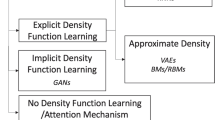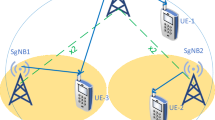Abstract
UTRA-TDD is one of the adopted air interfaces for third-generation mobile communication systems (UMTS). In UTRA-TDD, information packets are transmitted organized into radio frames. A radio frame is divided into a fixed number of time slots and different packets can be sent on the same time slot by means of the Code Division Multiple Access technique. Packets belong to different traffic classes and have different formats and Quality of Service (QoS) requirements in terms of delay, transmission error probability and priority level. In this paper, we address the problem of scheduling packets for downlink transmissions in the time slots of a frame, in such a way that QoS requirements are fulfilled. In particular, exact pseudo-polynomial and heuristic scheduling algorithms are compared in terms of typical performance parameters. Computational results for three traffic classes show that the proposed algorithms are suitable for UTRA-TDD implementation, both for solution quality and computational time.
Similar content being viewed by others
References
3GPP. “Physical Channels and Mapping of Transport Channels onto Physical Channels (TDD).” TS 25.221, Release 4.
3GPP. “Technical Specification Group (TSG) RAN WG4; RF System Scenarios.” TR 25.942, V2.2.1 (1999-12).
Adachi, F., K. Ohno, A. Higashi, T. Dohi, and Y. Okumura. (1996). “Coherent Multicode DS-CDMA Mobile Radio Access.” IEICE Trans. Commun., E79-B(9), 1316–1325.
Agnetis, A., G. Brogi, G. Ciaschetti, P. Detti, and G. Giambene. (2003). “Optimal Packet Scheduling in UTRA-TDD.” IEEE Communications Letters, 3(7), 112–114.
Akyildiz, I.F., D.A. Levine, and I. Joe. (1999). “A Slotted CDMA Protocol with BER Scheduling for Wireless Multimedia Networks.” IEEE/ACM Trans. Networking, 7, 1–13.
Blondia, C. and O. Casals. (1992). “Performance Analysis of Statistical Multiplexing of Variable Bit Rate Sources.” Proc. of INFOCOM ’92, pp. 828–838.
Brady, P.T. (1969). “A Model for On-Off Speech Patterns in two-way Conversations.” Bell Syst. Tech. J., 48, 2445–2472.
Chitrapu, P. (2004). Wideband TDD. New York: John Wiley & Sons.
Choi, S. and Shin, K.G. (1999). “An Uplink CDMA System Architecture with Diverse Qos Guarantees fo Heterogeneus Trafic.” IEEE/ACM Trans. Networking, 7(5), 616–628.
Detti, P., A. Agnetis, and G. Ciaschetti. (2005). “Polynomial Algorithms for a Two-Class Multiprocessor Scheduling Problem in Mobile Telecommunications Systems.” Journal of Scheduling, 8(3), 255–273.
Elayoubi, S.-E., T. Chahed, and G. Hebuterne. (2003). “Resource Management in UMTS: From Admission Control to Packet Scheduling.” Proc. of Networks, 2003-ICON2003, pp. 629–634.
ETSI. (1997). “Selection Procedures for the Choice of Radio Transmission Technologies of the UMTS.” UMTS 30.03 Version 3.1.0, ETSI, Sophia-Antipolis, Cedex, France.
Garey, M.R. and D.S. Johnson. (1979). Computers and Intractability—A guide to the Theory of NP–Completeness. San Francisco: Freeman & Co.
Hamalainen, S., H. Holma, A. Toskala, and M. Laukkanenz. (1997). “Analysis of CDMA Downlink Capacity Enhancements Personal, Indoor and Mobile Radio Communications.” Proc. of PIMRC 1997, 1, 241–245.
Hochbaum, D. and R. Shamir. (1991). “Strongly Polynomial Algorithms for the High Multiplicity.” Operations Research, 39(4), 648–653.
Holma, H. and A. Toskala. (2000). WCDMA for UMTS. New York: John Wiley & Sons.
Huang, V. and W. Zhuang. (2000). “Optimal Resource Management in Packet-Switching TDD CDMA Systems.” IEEE Personal Communications, 26–31.
Jantti, R. and S.-L. Kim. (2001). “Other-Cell Interference in Cellular Power-Controlled CDMA.” IEEE Communications Letters, 5(5), 200–202.
Leung, J.Y.T. (1982). “On Scheduling Independent Tasks with Restricted Extension Times.” Operations Research, 30(1).
McCormick, S.T., S.R. Smallwood, and F.C.R. Spieksma. (2001). “A Polynomial Algorithm for Multiprocessor Scheduling with Two Job Lengths.” Mathematics of Operations Research, 26(1), 31–49.
Nanda, S., D.J. Goodman, and U. Timor. (1991). “Performance of PRMA: a Packet Voice Protocol for Cellular Systems.” IEEE Trans. on Veh. Tech., 40(3).
Pedersen, K.I. and P.E. Mogensen. (2002). “The Downlink Orthogonality Factors Influence on WCDMA System Performance.” Proc. of Vehicular Technology Conference 2002-Fall.
Wang, X. (2001). “A New Scheduling Scheme for the Wideband TD-CDMA MAC Protocol.” Proc. of IEEE ICC 2001, Helsinki, Finland.
Wilhelmsson, L. and L.B. Milstein. (1999). “On the Effect of Imperfect Interleaving for the Gilbert-Elliot Channel.” IEEE Trans. Comm., 47(5).
Xiao, M., N.B. Shroff, and E.K.P. Chong. (2001). “Resource Management in Power-Controlled Cellular Wireless Systems.” Wireless Communications and Mobile Computing Journal, 1, 185–199.
Author information
Authors and Affiliations
Corresponding author
Additional information
Work carried out under the financial support of MIUR.
Rights and permissions
About this article
Cite this article
Ciaschetti, G., Corsini, L., Detti, P. et al. Packet scheduling in third-generation mobile systems with UTRA-TDD air interface. Ann Oper Res 150, 93–114 (2007). https://doi.org/10.1007/s10479-006-0160-2
Published:
Issue Date:
DOI: https://doi.org/10.1007/s10479-006-0160-2




